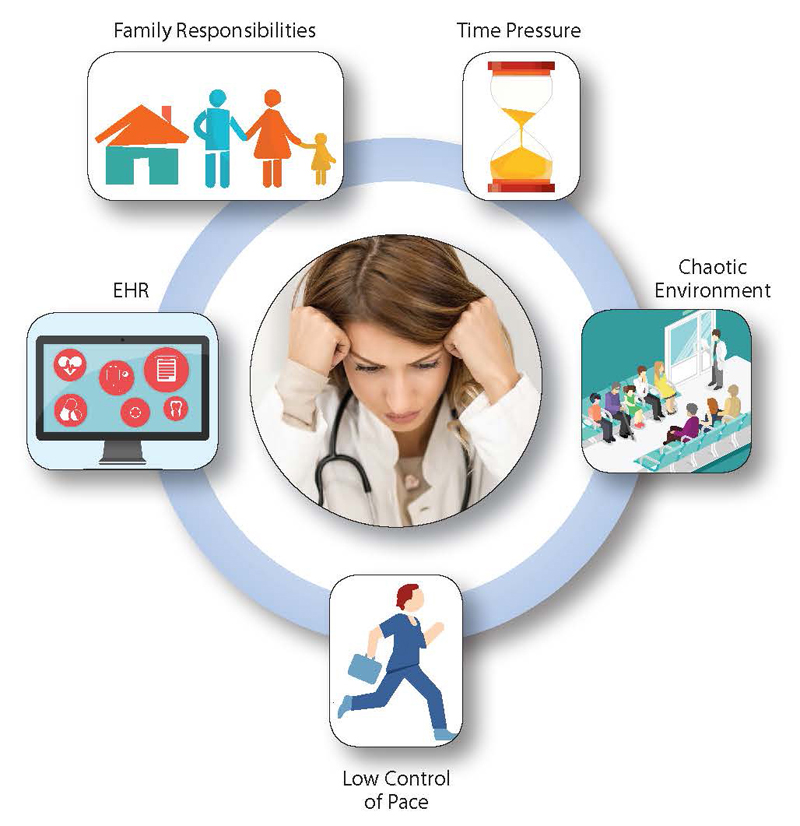Are You Burned Out? A Self-Diagnosis for Physicians

The life of a physician seems set up for stress from the start. Long working hours begin in medical school and residency, and daily rounds of making decisions that affect the lives of patients provide a burden that is heavier than other professions. It’s no wonder that many published studies cite that approximately one of every three physicians is experiencing burnout at any given time.
Physician burnout can lead doctors to exiting the profession, early retirement, or even suicide, so it’s important to be self-aware and recognize the signs. But how can you differentiate burnout from the daily stress of medical work? Below are three categories of symptoms that physicians can use for a self-diagnosis:
1. Physical Symptoms of Burnout
Exhaustion is a key sign of burnout. Physicians often would label themselves as “tired” due to a heavy workload that exceeds the standard 40-hour workweek. But burnout exhaustion is a tiredness that does not resolve after time spent away from the workplace to rejuvenate. If you find yourself unable to catch up, recharge or get back to “normal” this may be a sign of burnout.
Constant stress and continuous activation of cortisol in the body can lead to other physical symptoms including hypertension, osteoporosis, immunosuppression, insulin resistance, dyslipidemia, and ultimately, atherosclerosis and cardiovascular disease. These physical manifestations of stress are the body’s way of trying to signal that it has reached a breaking point and needs to slow down – make sure you are listening.
2. Mental Symptoms of Burnout
Everyone has bad days and mistakes, it’s what makes us human. Physicians experiencing burnout may have trouble concentrating and have episodes of forgetfulness. If poor performance, absenteeism and medical errors start to increase in frequency, intervention is needed.
Relying on alcohol or drugs to feel relaxed or “make it through another day” are serious signs of burnout that may be noticed by others before you recognize it in yourself. If a loved one expresses concern about your habits, try not to immediately dismiss them, but rather spend some time on honest self-reflection to see if their concerns are valid.
3. Emotional Symptoms of Burnout
Physician burnout can include a variety of emotional reactions based on individual personality traits. While some physicians may experience depression, poor job satisfaction, and despair that their work has no longer has meaning, other doctors may respond with anger, cynicism, depersonalization, and conflict.
If professional relationships at work and personal relationships at home have begun to deteriorate, this may be a sign of burnout. Poor satisfaction scores and bad reviews from patients may indicate that your bedside manner has made a turn for the worse and is affecting your ability for compassion that is essential for a practicing physician.
Do you recognize any of these symptoms in yourself or others? If so, you can begin to address them now by getting the help and rest you need. An upcoming article will cover the best strategies for combating physician burnout.




No Comments